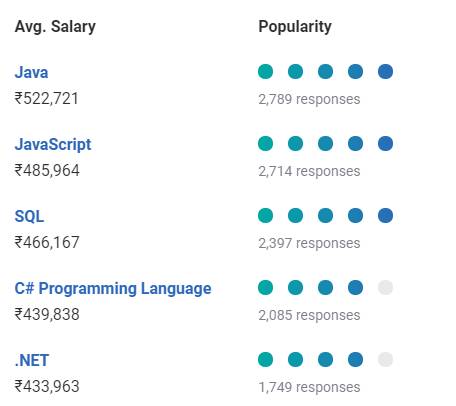
You have many options if you are interested in a career with zoology. These include veterinary medicine, agriculture, and museums. You should consider a career as a zoologist if you love animals and are interested in working in a dynamic field.
Conservation groups
In zoology, conservation groups are organizations that protect wildlife and ecosystems or promote the study specific species. These groups are often national or international, and their work is often collaborative. They partner with government agencies and other organizations to protect public lands and write legislation to protect endangered species and habitats. Many of these groups collaborate with law enforcement for the prosecution of wildlife crimes.
Conservation biology was established in the early 80s. It has been a rapidly growing field of research. Conservation biology draws on theories in genetics and demography to address specific conservation problems. It is an emerging discipline with many graduate and professional societies.

Museums
Museums for zoology have expanded in scope, size, and literature over the past quarter-century. They are not simply a dime museum. This is a common misconception. They are not repositories for freaks, curiosities, or spine-tingling experience.
These institutions have collections that include specimens from all aspects of animal life. These collections include dried shells as well as skeletal material. They also contain preserved whole specimens that have been fluid preserved. Many of these collections also include bone and horn specimens.
Veterinary medicine
If you are looking for a career that is both based on a love of animals as well as a strong interest and passion in zoology, then veterinary medicine could be the right choice. There are many options for this career. You can become a veterinarian, work in a zoo, or even conduct research.
Consider the education requirements before applying for veterinary medicine. While some programs do require a Bachelor's Degree, the majority of applicants have at least an undergraduate degree. Some schools also require an advanced degree or postdoctoral fellowship.

Agriculture
An Agriculture job in Zoology is focused on wildlife, plants and human health. It requires hands-on research and scientific knowledge. Most zoologists work at government agencies. They are involved in both applied and fundamental research. They might work for the National Research Council, Environment Canada and Fisheries and Oceans Canada. Many zoologists are also employed by private organizations in order to conserve endangered species or promote conservation efforts. They might also plan conservation initiatives, assist in animal rehabilitation, lobby the government, or study animal reproduction and welfare.
Agriculture biology graduates can also obtain a master's and a Ph.D. These degrees may be required for research positions and advanced roles. They can also help applicants stand out during the application process. However, these advanced degrees require extensive research and can take two or more years to complete.
FAQ
Do I need a degree to be a consultant?
Learning a lot about a subject and then applying it to your life is the best way to be an expert.
You can learn all you need to know to become a great consulting professional by starting to study now.
It may be difficult to get hired if your degree is not accompanied by relevant work experience. However, if you can demonstrate that you've studied the same subjects as those who got the jobs, you could still apply.
Employers will always seek out candidates who have real-world experience.
What skills are required for consulting?
An effective consultant must have strong interpersonal skills as well as analytical skills. This is important because you are working on projects where you may not know exactly what you are doing. It is important to learn how to quickly solve problems and manage people.
Also, you must have great communication skills. Most clients expect an answer within 24hrs. They assume that you won't respond if they don't hear from them within 24 hours. It's important, therefore, to always keep them informed and ensure they understand what is going on.
How did modern consultancy come about?
Consultants were originally accountants who could help companies manage their financial affairs. They became known as "accounting consultants." This was because they had become very skilled at managing financial information. The role soon expanded to include other areas, including human resources management.
The French word meaning "to advise" in French is what gave rise to the term "consultant". This term was originally used by businessmen to denote someone who could give guidance on how to run an enterprise. The word consultant is still used by most business owners to refer to any kind professional advisor.
What types of contracts exist for consultants?
When consultants are hired, they sign standard employment agreements. These agreements detail the length of the consultant's contract with the client, the amount he/she is paid, and other important details.
Contracts can also indicate the areas of expertise that the consultant will concentrate on and the compensation they will receive. An agreement could state, for example, that the consultant will offer training sessions, workshops and webinars.
Sometimes the consultant will simply agree to complete a task within a certain timeframe.
Consultants often sign independent contractor contracts in addition to their standard employment agreements. These agreements allow the consultant work on his/her own but still receive compensation for his/her efforts.
What happens after the consultant completes the job?
After the consultant has completed the work, they will submit a final document detailing the results. This report details the project timeline, deliverables, as well any other pertinent information.
Then, you'll review the report and decide whether the consultant met your expectations. If the report does not meet your expectations, you have two options: to request changes or to terminate the contract.
Statistics
- 67% of consultants start their consulting businesses after quitting their jobs, while 33% start while they're still at their jobs. (consultingsuccess.com)
- On average, your program increases the sales team's performance by 33%. (consultingsuccess.com)
- Over 62% of consultants were dissatisfied with their former jobs before starting their consulting business. (consultingsuccess.com)
- My 10 years of experience and 6-step program have helped over 20 clients boost their sales by an average of 33% in 6 months. (consultingsuccess.com)
- Over 50% of consultants get their first consulting client through a referral from their network. (consultingsuccess.com)
External Links
How To
How can I start a consultancy business with no money?
It's easy and cost-effective to start your own consulting business without capital investment.
This tutorial will show you how to make money online from home. It will also help you improve your skills and earn extra cash.
I'll be sharing some secrets on how to get traffic on the demand, especially for people searching for specific items.
This method is known as "Targeted Traffic". This method was built specifically to allow you to do things like this...
-
Find the niche in which you would like to work.
-
Research which keywords people use to find solutions on Google.
-
These keywords can be used in content.
-
Post your articles on article directories.
-
Make sure to use social media sites for promotion of your articles.
-
Develop relationships with experts in the niche and influencers.
-
Be featured on these blogs or websites.
-
Grow your email list by sending out emails.
-
Start making money.